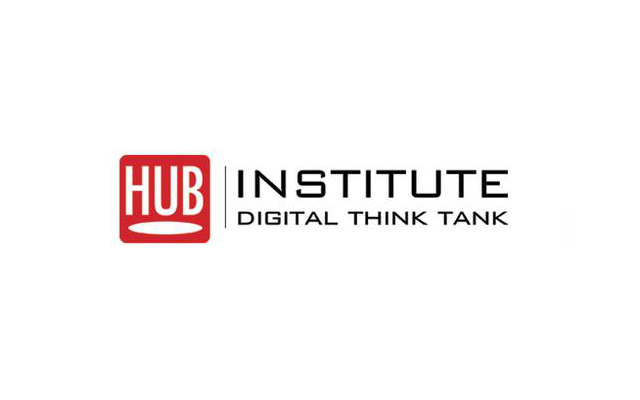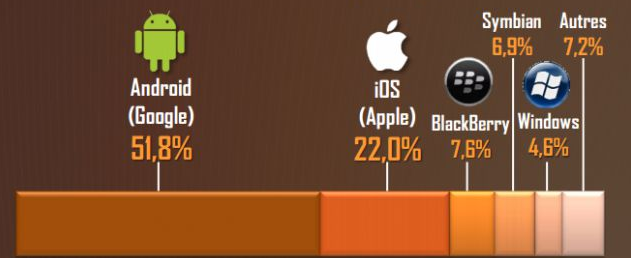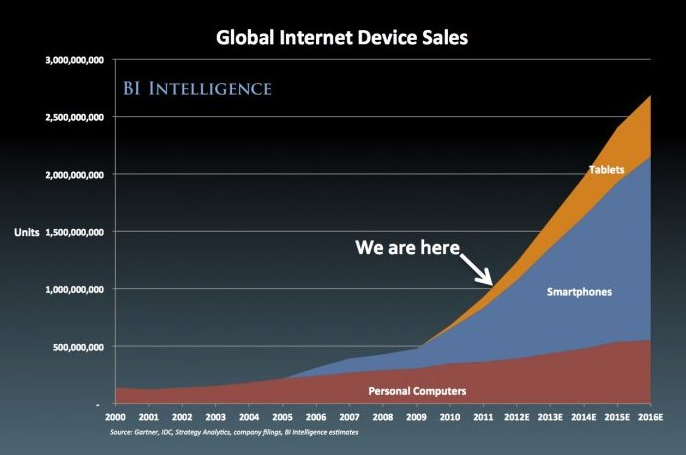
When the Web adapts for the benefit of the user
The biggest companies compete with new innovative firms, important changes are taking place, the end customer at the heart of the decisions. A revolution is taking place on the web. Tuesday, December 10, 2013, Emmanuel Vivier gives us his vision of digital disruption at #SupDeWeb.

The limits of competition
“The web has a flattening side where everyone is in competition with everyone else” To clarify the words of Emmanuel Vivier, this goes back much earlier than the creation of the web. When Boeing decided to compete with intercontinental travel by air as the biggest and most influential shipping companies battled for superior speed on water. Or when Elon Musk competes with the biggest car companies by creating a high-performance electric car. But these examples are all the more important to take into account in the world of the web. Indeed, it is “increasingly difficult to know with whom we are competing, all circles are converging” as Emmanuel Vivier points out. AirBnb is one of the first to realize this, having more rooms to rent than the largest hotel company in the world and doing so without any inventory and with very few staff to manage, simply by offering interaction with the user appropriate to their needs. Many giants, wanting to retain their leading position, made mistakes and behaved badly, I am of course thinking of the music, television and press industries, which today have fallen considerably behind and which leaves new pure players with a very buoyant market share. The reference is made here with one of the major players in this revolution: Netflix, a platform for streaming films in high definition legally subject to a monthly subscription; it will be available in France very soon. The newspaper industry is collapsing. Advertising space is no longer enough to compensate for lost paper sales. Between 2000 and 2012, the turnover was divided by 3. How to compete against the free, instantaneous information accessible to all from Twitter or other collaborative information sites?
Changing user behavior
In 2013, the computer market stagnated while that of tablets and smartphones exploded. The latter occupy an increasingly important place as a support for the web. Manufacturers compete to reach this part of the population which is increasingly important.


The web is an open market place (it is almost impossible to be banned from access), while the applications are selected in a completely legitimate way. Giants dominate content delivery thanks to app sorts. Indeed, mobile operating systems are managed by a few major private players. The most popular of them is that of Google, which has more than 51.8% of users. Private actors do not hesitate to abuse their power. Apple often uses it, for example by choosing an unopened operating system so that users are forced to remain faithful for all media (tablets, smartphones, computers). The cost of change will be too high if users were to change. “Offer the best service to the customer who uses his time” Apple stores are the most profitable per square meter, everything is thought out in relation to the customer, each computer is leaned over so that the screen is put back in place and thus creates the interaction between product and user. Individualization is a notion that works on the web. Khan Academy is one man, one computer, 10 million students with 3800 online videos. It reinvents education by offering educational courses adapted to each level. Despite a very basic or even very ugly visual, the Leboncoin and Craigslist sites are the most used ad sites because they are intuitive for all people regardless of their age. Users, followers of free, but also of new technologies are very fond of Freemium, a business model which consists of making a product available for free while offering additional paid features.
The strength of the collaborative economy
Social networks and any other platform where the content is generated by the user himself, make it possible to obtain a more attractive profitability, which is much more profitable. The display pages are more numerous and targeting is easier, the campaigns are then more relevant. It is not uncommon to see many websites that are very profitable, and with a lower cost, spring up frequently: Welovemakeup, a make-up advice platform between individuals or KickStarter, a platform for financing projects between individuals. The TED conferences, which are now world famous, have become collaborative thanks to the new TEDx service, which allows viewing of an event created by an external organization.
A connected world
Although smartphones today make it possible to be constantly connected, it is the turn of objects to be tools of interaction. Google is the most present player in this field, with its Google Glass, connected glasses, or Google Car, cars moving alone. Ecosystems, such as the collection of various Microsoft operating systems, are increasingly common. Companies favor the development of APIs, allowing data to be exchanged between companies.

3D printing makes it possible to print with various materials and also human cells allowing the body not to reject the printed organ. This technology is new and we remain very optimistic about its capabilities, the files are already downloadable on the net. We imagine that tomorrow, it will be possible to be independent and to be able to print, at home, all our necessary equipment at a lower cost. Ikea is one of the brands that will suffer the most from this technology, if it does nothing quickly to adapt.
We want to share this with you

Hyperloop
Research project for a very fast mode of transport imagined by Elon Musk: an elevated tube in which capsules travel at more than 1,102 km/h.

Service to open a restaurant in your home. You become cook and host in exchange for a gratuity. http://www.cookening.com More information on Emmanuel Vivier and Hub Institute http://www.hubinstitute.com http://www.hubforum.com http://www.facebook.com/hubforum http://www.emmanuelvivier.com @emmanuelvivier
Authors
Selim Renoud-Lyat @LoupionKatouchK Emmanuel Guérin @Emmanuel_GUERIN



